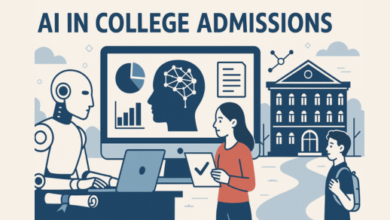The Power of Extracurricular Activities in School

Extracurricular activities are an integral part of the school experience, offering students opportunities to explore their interests, develop essential life skills, and create lasting memories. This article delves into the significance of extracurricular activities, their benefits, and how they contribute to the holistic development of students.
Understanding Extracurricular Activities
Extracurricular activities encompass a wide range of organized activities and clubs that take place outside of the regular school curriculum. These activities can be academic, artistic, athletic, or interest-based and are typically led by teachers, coaches, or advisors. Examples include sports teams, drama clubs, debate teams, student government, chess clubs, and more.
The Benefits of Extracurricular Activities
Participation in extracurricular activities offers numerous advantages to students:
- Skill Development:
Extracurricular activities provide opportunities for students to develop and hone various skills, such as leadership, teamwork, time management, and problem-solving.
- Enhanced Academic Performance:
Studies have shown that students who engage in extracurricular activities often perform better academically. These activities can improve time management and organizational skills, which are beneficial for schoolwork.
- Personal Growth:
Participation in extracurricular activities can boost students’ self-esteem and confidence as they set and achieve goals, learn new skills, and gain recognition for their efforts.
- Social Engagement:
Extracurricular activities foster social interaction, helping students build friendships, develop communication skills, and create a sense of belonging.
- Exploring Interests:
Students can explore their interests and passions outside the classroom, potentially discovering new career paths or hobbies.
- Time Management:
Balancing school, extracurricular activities, and other commitments teaches students valuable time management skills that will serve them in the future.
- Networking:
Students can build networks and connections with peers, teachers, and mentors, which can be beneficial for future academic and career opportunities.
- Stress Reduction:
Extracurricular activities provide a healthy outlet for stress and can improve overall mental and emotional well-being.
- Civic Engagement:
Activities like student government or community service clubs instill a sense of civic responsibility and encourage students to become active citizens.
- Fun and Enjoyment:
- Extracurricular activities offer an enjoyable and fulfilling way for students to spend their time outside of the classroom.
Holistic Development of Students
Extracurricular activities play a significant role in the holistic development of students by addressing various aspects of their lives:
- Academic Development:
Participation in academic clubs, such as science or math clubs, can enhance students’ knowledge and problem-solving skills.
- Physical Health:
Athletic activities, such as sports teams, promote physical fitness and overall well-being.
- Creativity:
Art, music, and drama clubs provide students with an outlet for creativity and self-expression.
- Leadership and Responsibility:
Student government and leadership roles within clubs teach students about responsibility and decision-making.
- Interpersonal Skills:
Clubs that involve teamwork, like debate teams or community service clubs, improve students’ interpersonal skills.
- Career Exploration:
Some activities, like career-oriented clubs, can help students explore potential career paths and gain relevant experience.
- Civic and Social Responsibility:
Extracurricular activities centered on community service or advocacy instill values of civic and social responsibility.
Challenges and Considerations
While extracurricular activities offer numerous benefits, there are also challenges and considerations to keep in mind:
- Time Commitment:
Students may struggle to balance academic responsibilities, extracurricular activities, and personal time. It’s important to find a healthy balance.
- Accessibility:
Some students may face barriers in accessing extracurricular activities, such as financial constraints or transportation issues.
- Overcommitment:
Students can become overcommitted, leading to stress and burnout. It’s important for parents and educators to monitor this.
- Inclusivity:
Schools should ensure that extracurricular activities are inclusive and offer options that cater to a diverse range of student interests.
- Academic Performance:
While extracurricular activities can enhance academic performance, excessive involvement can have the opposite effect. Finding the right balance is crucial.
Examples of Extracurricular Activities
A wide variety of extracurricular activities exist, catering to different interests and talents. Some common examples include:
- Sports Teams:
Soccer, basketball, volleyball, swimming, and other sports offer opportunities for physical activity and competition.
- Drama and Theater Clubs:
These clubs allow students to explore their creativity through acting, stage design, and production.
- Music and Band Programs:
Students can join band, orchestra, or choir to learn and perform music.
- Debate and Public Speaking:
Clubs focused on debate and public speaking help students develop their communication and critical thinking skills.
- Science and Math Clubs:
These clubs engage students in scientific experiments, math competitions, and problem-solving.
- Student Government:
Student government provides leadership opportunities and a platform for advocating for student needs and concerns.
- Art and Creative Writing Clubs:
These clubs allow students to explore their artistic talents through various forms of expression.
- Community Service:
Students can engage in volunteer work and community service to give back to their communities.
- Coding and Technology Clubs:
Technology-oriented clubs teach students coding, robotics, and other tech-related skills.
- Language and Culture Clubs:
- Students can join clubs that focus on learning languages and exploring different cultures.
Conclusion
Extracurricular activities play a vital role in the development and enrichment of students’ lives. They offer a multitude of benefits, including skill development, improved academic performance, personal growth, and the opportunity to explore a wide range of interests. While there are challenges and considerations, finding the right balance of extracurricular involvement can be a key factor in a student’s overall growth and well-being. Schools and communities should continue to provide diverse and inclusive extracurricular opportunities to help students flourish both inside and outside the classroom.




